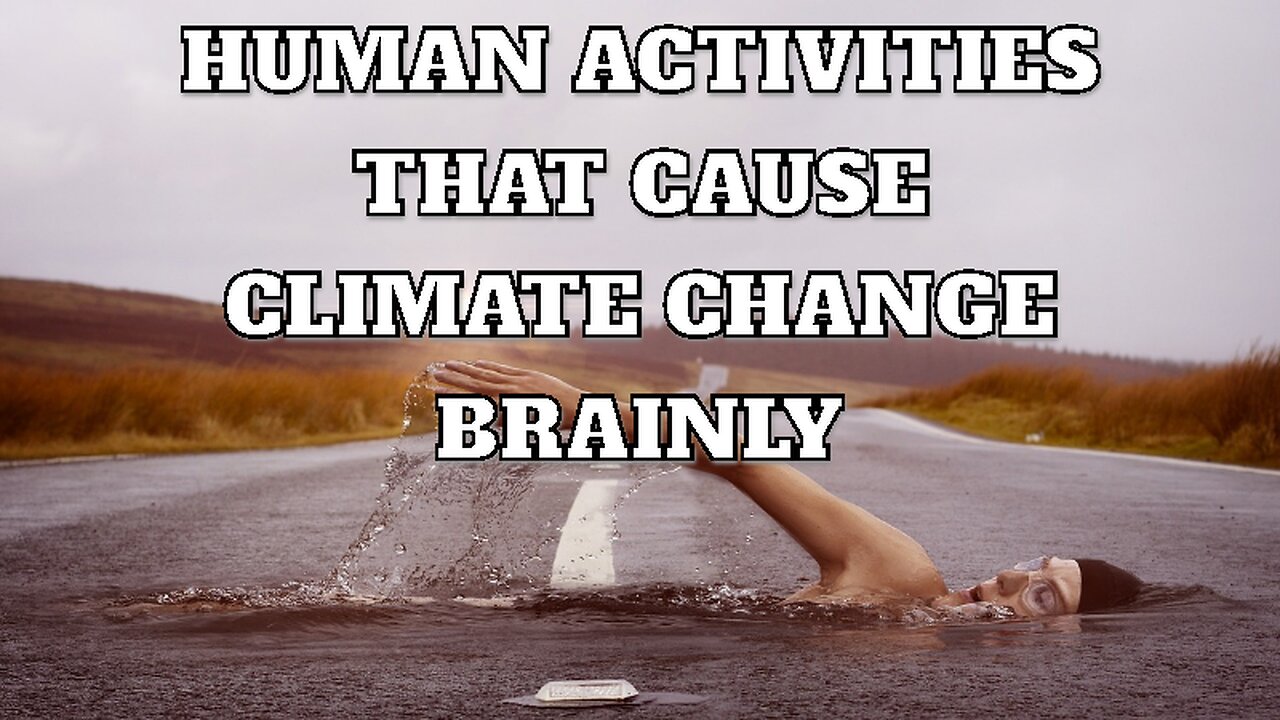Premium Only Content

Human activities that causes climate change, brainly
Climate change is a complex issue with far-reaching consequences, and it's easy to feel overwhelmed by the sheer scale of it all. But what if we told you that there's a hidden dimension to climate change that's deeply intertwined with our own brains?
Understanding the Brain's Response to Climate Change
Our brains are constantly bombarded with information from the world around us. This information is processed, analyzed, and stored in different parts of the brain, allowing us to make decisions, form memories, and interact with our environment.
When it comes to climate change, our brains are receiving a constant stream of signals that signal danger and threat. These signals trigger a cascade of physiological and psychological responses, including:
• Increased stress hormones: The threat of climate change activates our stress response system, leading to increased levels of cortisol and other stress hormones. This can lead to feelings of anxiety, irritability, and difficulty concentrating.
• Reduced cognitive function: Chronic stress can impair our ability to think clearly and make rational decisions. This can make it difficult to engage in effective climate action.
• Changed emotions: Climate change can evoke a range of emotions, from fear and sadness to anger and despair. These emotions can motivate us to take action, but they can also lead to feelings of helplessness and hopelessness.
• While these responses are understandable, they can make it challenging to address climate change effectively. So, what can we do to overcome these challenges and harness the power of our brains to become more effective climate advocates?
Harnessing the Brain's Power for Climate Action
Our brains are incredibly adaptable, and we can train them to respond to climate change in a more constructive way. Here are a few strategies to consider:
• Educate yourself: Understanding the causes and consequences of climate change can help reduce anxiety and empower you to take action.
• Engage in positive climate action: Taking action, even small ones, can help reduce stress and boost your sense of agency.
• Connect with others: Join a climate action group or talk to friends and family about climate change. Social connection can provide support and motivation.
• Practice mindfulness: Mindfulness techniques can help manage stress and promote positive emotions.
By adopting these strategies, we can transform our brains from sources of anxiety and fear into powerful tools for climate action.
Climate change is a complex and challenging issue, but it's one that we can overcome with the help of our brains. By understanding how climate change affects our brains and adopting strategies to harness its power, we can become more informed, engaged, and effective climate action advocates.
Remember, every action, big or small, makes a difference. Let's use the power of our minds to create a more sustainable and resilient future for all.
-
 LIVE
LIVE
GritsGG
41 minutes agoWin Streaking! Most Wins 3485+ 🧠
22 watching -
 1:02:09
1:02:09
The Confessionals
20 hours agoThe Supernatural Proof You Can’t Ignore (When Angels and Demons Showed Up) | Lee Strobel
30.5K21 -
 15:24
15:24
Degenerate Jay
21 hours ago $0.76 earned5 Best Moments In Batman: Arkham Asylum
14K -
 12:24
12:24
The Shannon Joy Show
14 hours ago🔥From Flock Cameras to Palantir: America’s Expanding Digital Cage🔥
11.8K2 -
 LIVE
LIVE
BEK TV
23 hours agoTrent Loos in the Morning - 8/27/2025
238 watching -
 LIVE
LIVE
The Bubba Army
23 hours agoTaylor Swift & Travis Kelce ENGAGED! - Bubba the Love Sponge® Show | 8/27/25
1,514 watching -
 40:14
40:14
Uncommon Sense In Current Times
17 hours ago $2.57 earnedThe Dating Crisis in America | J.P. De Gance on the Church’s Role in Restoring Family & Faith
47.1K6 -
 12:35
12:35
Red Pill MMA
20 hours agoNow We Know The Truth.. Hero Who Stopped Raja Jackson Speaks Out
18.1K8 -
 8:03
8:03
MattMorseTV
18 hours ago $9.35 earnedThings in the UK just got INSANE...
98.2K139 -
 3:02:10
3:02:10
daniellesmithab
13 hours agoAlberta Next: Fort McMurray Town Hall
24.4K1